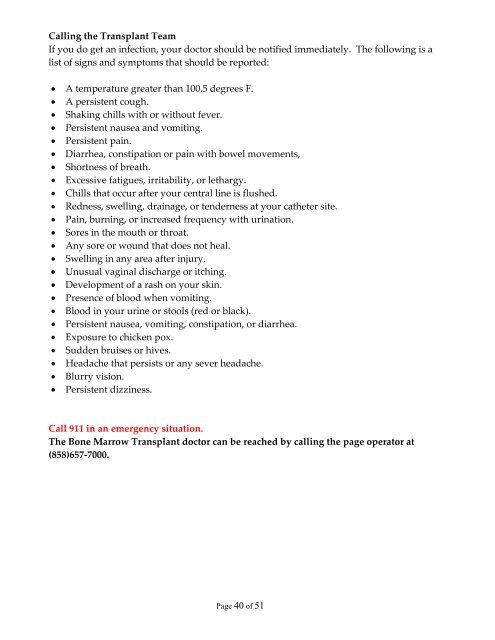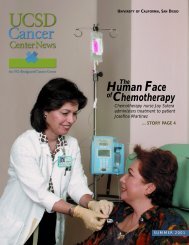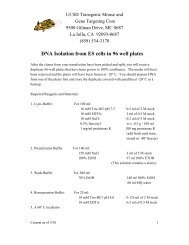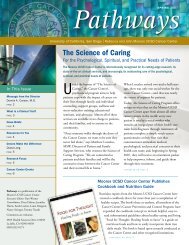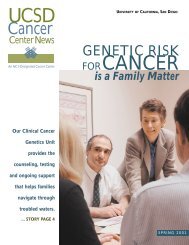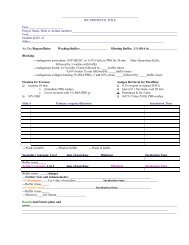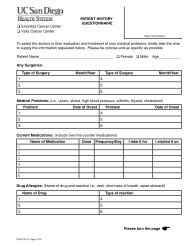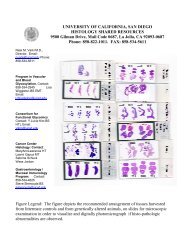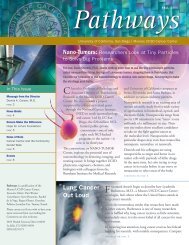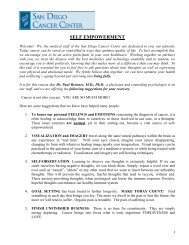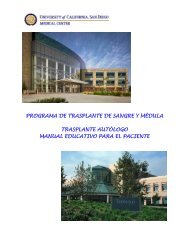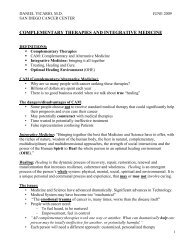Autologous Transplant Patient Education Manual - Moores Cancer ...
Autologous Transplant Patient Education Manual - Moores Cancer ...
Autologous Transplant Patient Education Manual - Moores Cancer ...
Create successful ePaper yourself
Turn your PDF publications into a flip-book with our unique Google optimized e-Paper software.
Calling the <strong>Transplant</strong> Team<br />
If you do get an infection, your doctor should be notified immediately. The following is a<br />
list of signs and symptoms that should be reported:<br />
A temperature greater than 100.5 degrees F.<br />
A persistent cough.<br />
Shaking chills with or without fever.<br />
Persistent nausea and vomiting.<br />
Persistent pain.<br />
Diarrhea, constipation or pain with bowel movements,<br />
Shortness of breath.<br />
Excessive fatigues, irritability, or lethargy.<br />
Chills that occur after your central line is flushed.<br />
Redness, swelling, drainage, or tenderness at your catheter site.<br />
Pain, burning, or increased frequency with urination.<br />
Sores in the mouth or throat.<br />
Any sore or wound that does not heal.<br />
Swelling in any area after injury.<br />
Unusual vaginal discharge or itching.<br />
Development of a rash on your skin.<br />
Presence of blood when vomiting.<br />
Blood in your urine or stools (red or black).<br />
Persistent nausea, vomiting, constipation, or diarrhea.<br />
Exposure to chicken pox.<br />
Sudden bruises or hives.<br />
Headache that persists or any sever headache.<br />
Blurry vision.<br />
Persistent dizziness.<br />
Call 911 in an emergency situation.<br />
The Bone Marrow <strong>Transplant</strong> doctor can be reached by calling the page operator at<br />
(858)657-7000.<br />
Page 40 of 51


